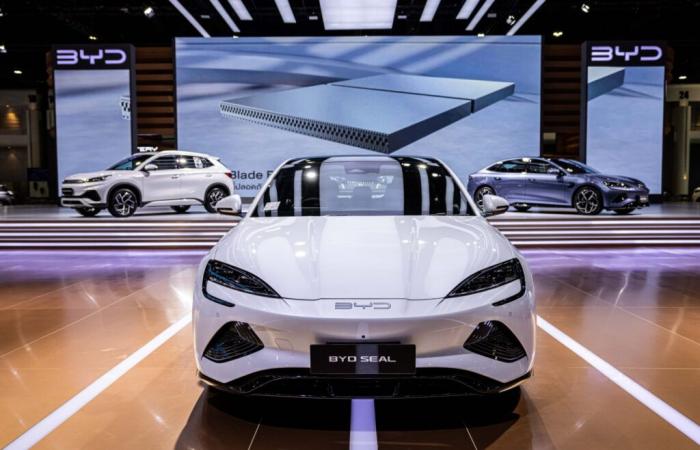Electric car news
The European automotive industry is at a decisive turning point. Faced with China's meteoric progress in the field of electric cars, the European Union is seeking to regain control. A bold strategy is emerging, combining diplomacy and firmness, to try to rebalance the forces present.
Europe's late awakening to Chinese domination
Long at the forefront of automotive innovation, Europe has been left behind in the race for electric vehicles. China was able to anticipate this transition and invest massively in battery technologies. Result: Chinese manufacturers now dominate the market with efficient and affordable models.
This technological advance worries European authorities. Not only does it threaten the automobile industry of the Old Continent, but it also raises questions of energy sovereignty. Faced with this observation, the EU has decided to go on the offensive.
The European strategy: between protection and forced cooperation
To counter the Chinese offensive, Brussels is deploying a two-pronged approach:
- Market protection: A increase in customs duties on electric cars imported from China was voted on by the 27 Member States. This measure aims to give some breathing space to European manufacturers in the face of Asian competition.
- Incentivizing technological sharing: According to sources cited by the Financial Times, the EU would consider condition access to a grant fund of one billion euros technology transfer from Chinese companies.
This latest initiative is particularly bold. It would amount to asking Chinese manufacturers to share their industrial secrets on batteries in exchange for access to the market and European aid. An approach reminiscent of past Chinese practices, when Beijing forced foreign manufacturers to partner with local companies to access its market.
A risky bet with uncertain consequences
The European strategy, if it is confirmed, represents a real diplomatic and industrial poker move. On the one hand, it could allow Europe to make up part of its technological gap. On the other, it risks exacerbating tensions with China and provoking retaliatory measures.
Beijing has already made it known that it takes a dim view of these maneuvers. The Chinese government has even called on its manufacturers to be cautious regarding their investments in Europe. The probability that Chinese companies will agree to share their valuable technologies therefore seems low.
Challenges for the European battery industry
Beyond this attempt at forced cooperation, Europe must meet significant challenges to develop its own battery sector:
- Massive investments : The creation of a complete production chain, from the extraction of raw materials to the manufacturing of cells, requires billions of euros.
- Formation : We must quickly train a qualified workforce in an area where Europe is seriously lacking in expertise.
- Raw material supply : Access to lithium, cobalt and rare earths is crucial and requires a coherent geopolitical strategy.
Faced with these challenges, several European initiatives have emerged, such as the European Battery Alliance. But there is still a long way to go to achieve the strategic autonomy targeted by the EU.
The future of electric mobility in Europe: between ambition and realism
The transition to electric mobility represents a major challenge for the European automotive industry. If the EU's current strategy demonstrates a late awareness, it also shows a desire not to leave the field open to Chinese competition.
However, beyond diplomatic and regulatory maneuvers, it is in the field of innovation that the future will be played out. European manufacturers must redouble their efforts to offer high-performance, affordable electric vehicles adapted to consumer needs. At the same time, the development of a solid and competitive European battery industry is crucial.
The stakes are high: it is not only a question of preserving jobs and industrial know-how, but also of ensuring Europe's energy independence in a rapidly changing world. Faced with this challenge, cooperation between Member States, manufacturers and research centers will be decisive.
The game is far from over. Although Europe has fallen behind, it still has considerable assets: a large market, cutting-edge technological skills and strong political will. It remains to transform these assets into a winning strategy for the European automobile industry of tomorrow.
Written by François Zhang-Ming
I have always shown a keen interest in science and technology from a very young age. I have a dual culture, Chinese through my mother and French through my father but also through my studies, which allows me to be very familiar with the technological innovations of the Far East.
React to the article







